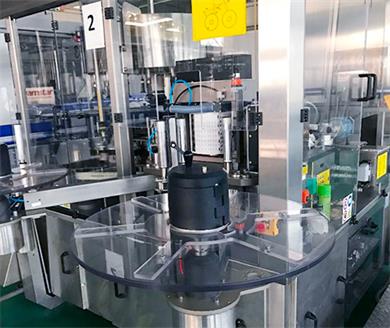RFID Improves Warehouse Operations and Efficiency
Here’s one more reason that good connectivity is critically important to the real estate ecosystem- RFID systems that are used in warehouses, in transport systems and in asset tracking need good networks. It not a nice to have, it’s a must have!
Radio Frequency Identification (RFID) is one of the most promising technologies to come to warehouses. As these facilities have become more crucial to the economy and more competitive, taking advantage of new technologies is essential. RFID systems are one such technology that can improve operations and efficiency throughout the warehouse.
A lot of warehouses use barcode systems to keep track of their inventory, but these are imperfect solutions. Barcodes rely on manual scanning, which takes time, and can only communicate so much data. RFID tags, on the other hand, offer a far faster and more versatile answer to the problem of inventory management.
Streamlined Operations
The most prominent benefit of an RFID system is that it enables a streamlined approach to warehouse management. Since RFID tags broadcast a signal, warehouse management systems (WMS) can scan and track them automatically. Without having to stop and scan each item individually, workers can sort inventory in a fraction of the time.
With a barcode system, how fast an employee can find an item depends on how well-organized the warehouse is. RFID tags can broadcast their location, helping even new workers find them almost instantly. This lightning-fast identification system also speeds the product recall process.
This operational streamlining can lead to a 7.5% reduction in labor costs or more. In larger distribution centers, that figure can go as high as 40%, almost cutting costs in half. Warehouses can’t afford to pass up on an improvement that substantial.
Lower Margin for Error
Mistakes can be costly, especially in an area as time-sensitive as warehouse management. While most facilities have a low picking error rate, these mistakes can cost $22 apiece, which adds up to $390,000 a year on average. Since RFID tags improve accuracy, they can save warehouses hundreds of thousands of dollars a year.
An RFID tag can contain 100 times more data than a barcode, so employees know more about each package. More information plus faster scanning means that RFID-based picking and tracking is far more accurate than traditional systems. As data becomes increasingly critical for warehouse operations, this accuracy is indispensable.
Mis-picking isn’t the only error that RFID tags account for, either. Issues in inventory visibility can lead to stagnant stock and lost items, which are costly mistakes, especially with time-sensitive products and materials. The transparency and accuracy of RFID tags enable warehouses to avoid these problems.
Heightened Security
RFID tags can also help warehouses protect against theft and fraud. When every product carries a unique, transparent identifier, systems can spot counterfeited goods in an instant. For warehouses dealing with luxury items, preventing fraud like this is essential.
Retail stores have used RFID tags to prevent theft for years, and warehouses can do the same. Warehouses are the most-targeted cargo theft locations, with the average incident costing $254,800. Without improving security, these facilities can suffer substantial losses.
An RFID-based security system and signal an alarm the moment an item leaves the facility when it’s not supposed to. If a thief manages to get away in time, the traceability of RFID tags makes it possible to track down and recover the stolen goods. While theft may not be at the forefront of many warehouse managers’ minds, these advantages are hard to ignore.
RFID Systems Enable Faster, More Accurate Warehouses and Asset Tracking once Materials are in Transit
The economy cannot survive without the supply chain, which can’t function without efficient warehouses. For these facilities to become as efficient as possible, they need to embrace technology like RFID systems. Without them, they could fall behind the competition and suffer major losses. Keep in mind that RFID technology is used in the entirety of the supply chain not just in the wearehouse.
RFID tags make warehouse operations more precise, faster and more secure. In a competitive industry, maximizing these areas is essential to survival. Without RFID tags, today’s warehouses could not function at the level they do. Think about that next time your order goes missing.
- Impinj unlocks new IoT device opportunities with launch advanced RAIN RFID chips
- RFID is Improving the World of Healthcare
- Confidex Ferrowave Micro Delivers On-Metal RFID Tracking for Specialty Retail
- Paragon ID announces the acquisition of Security Label, European leader and one of the world's bigge















